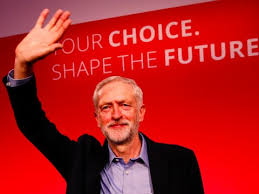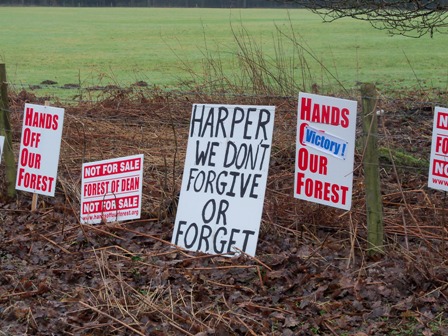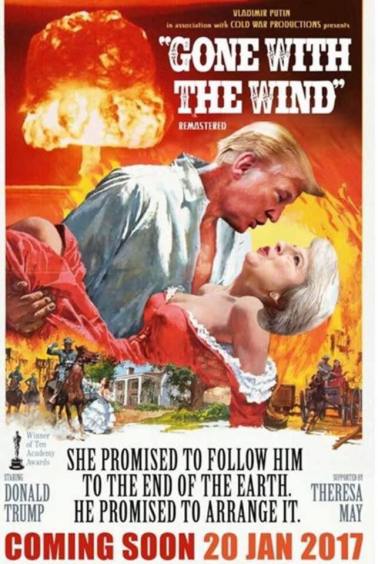As 2017 dawned, crises struck the National Health Service in England. Our hospital services in particular were hit by what seemed like a sudden tsunami of patients needing treatment. The media showed us queues in hospital corridors of patients left (often overnight) on trolleys because beds just weren’t available. Or, indeed immediate treatment. It showed up a service in meltdown. Even the Red Cross described it as a “humanitarian crisis”.
Yet it was a crisis that seemed to have a certain inevitability about it. Indeed it wasn’t really a case of if but when. A bout of bad weather together with a build-up of urgent cases that couldn’t be put on the back burner was enough to trigger the emergency. Even cancer cases were put on hold in some hospitals.
The National Health Service has come a long way since it was founded with such high expectations in the post-war years. It came into being in the summer of 1948, at a time when the country was trying to pull itself together after the devastation of war. It was the most visible, and most welcomed, part of the new welfare state being created following the adoption of the “Beveridge Plan”. The Tories didn’t like it, of course, claiming loudly that it was something that we just couldn’t afford.
We could of course afford it (as we could today if the will was there). True, the provision of “National Health” glasses disappeared, along with free dental care, not to mention modest prescription charges. But apart from that the NHS had become rooted and accepted by the time the Tories returned to power in the early ‘fifties. And the new Government accepted it as part of the status quo.
THATCHER – AND BLAIR:
It wasn’t until Margaret Thatcher returned to power that the NHS came under attack. She made it clear (at least privately) that she disliked our Health Service. But she realised that any frontal attack would be unwise, and so instead she encouraged the spread of private health care, to provide “options”. The strategy was clear. As funds were re-directed from the public to the private sector, then the NHS would decline into providing a second class service.
Certainly within Thatcher’s own period of office it failed to have the impact she desired. But when Blair came to power it seemed he had his own plans for the NHS which in many ways ran counter to the original ideals of the Service. Early examples of democratic control disappeared. Smaller hospitals and care facilities were closed, and a process of centralisation of services was introduced.
Even hospital provision in the Forest came under threat. Both Lydney and the Dilke were earmarked for closure, and were only saved after a determined and sustained campaign across the Forest of Dean.
But Blair’s biggest attack on the founding principles of the Health Service was the introduction of “foundation hospitals” in 2003. This was bitterly opposed by Labour MPs in the Commons (63 voted against it), and Frank Dobson, a former Health Minister described them as a “cuckoo in the nest”. Health campaigner, Professor Allyson Pollock declared that such foundation trusts were a “fig leaf for privatisation.”
Incidentally, one of those that applied for “foundation trust” status was the Gloucester hospital trust. Fortunately, it never went ahead.
EROSION OF THE NHS:
All these changes to the structure of the National Health Service contributed to its fragmentation. Local health boards had, by now, disappeared – and there was a blurring of the line between public and private health care.
Fast forward to the Cameron era, and the “age of austerity”. Health care was soon identified as one of the country’s big spenders which, it seemed, we couldn’t afford. Strict financial controls were imposed on health care – particularly on hospital budgets.
Of course if a patient needs treatment, he or she should get it. And the NHS was founded to ensure that the care would be available, “free at the point of need”. They shouldn’t have to shop around, or join a waiting list, let alone dig into their pockets in order to “go private”.
David Cameron was keen to point out that “we were all in this together, but by this time the lines were so blurred and care was being increasingly rationed that the NHS was struggling to provide adequate care.
A SORRY SAGA:
We’ve come a long way from the establishment of the NHS in the summer of 1948 to the sorry state of the service today. Our Health Care needs more, much more, than extra cash to fund it adequately. It also to be able to return to the principles and practices on which it was founded.
And we should also salute those who work within the service who’ve worked hard, for long hours, to keep it operating for so long – often for little reward.
HEALTH WATCH: PROMISES, PROMISES
Whatever happened to those promises that if we achieved “Brexit” there’d be all that extra money to pump back into the NHS?
The pledge was plastered all over the sides of campaign buses. It figured in speeches made by pro-Brexit campaigners. And then quietly forgotten after the votes had been counted.
Now, it seems, the opposite will be true. There will be swingeing cuts to an already cash-strapped service.
According to the BMA, £22 billion’s worth of cuts will have to be made in order to balance the books. And Dr. Mark Porter, head of the doctors’ union, charged those with pushing the cuts of using them “as a cover for starving services and resources and patients of vital care.”
“SUSTAINABILITY AND TRANSFORMATION”:
The cuts are all part of the new “Sustainability and Transformation” plan (revealed in the last issue of the Clarion.) The plan has been introduced with little or no consultation with those who will be most affected – the doctors (not to mention the patients!
In response Dr. Porter says, “improving patient care must be the priority… There is a real risk that these transformative plans will be used as a cover for delivering cuts, starving services of resources and patients of vital care.”
Meanwhile, a conference held in Birmingham to “challenge the Sustainability and Transformation Plan” back in September was organised by Health Campaigns Together. It drew a packed audience. One of its main speakers was Dr. John Lister.
“MISSING ELEMENTS”:
There are three missing elements from the NHS as we know it today, declared Dr. Lister. One, the money. Two, the staff to do the job. And, three, the evidence that the policies can deliver the expected results.
Documents produced by the Sustainability and Transformation Plan (STP) show a reluctance to engage with this harsh reality, he said. Instead there’s an air of wishful thinking, of pie in the sky.
Consequently, plans are written not by those from within the NHS, but by lavishly paid management consultants. Meanwhile, have these consultants, however lavishly paid, offered any real evidence to support the assertions and proposals that they’ve made?
WHAT’S “INTERMEDIATE CARE”?
“What is glaringly obvious is that throughout the 51 pages of text there is not one example of a working model of the type of new systems that are proposed to replace hospital bed provision… According to another document prepared by management consultants “intermediate care” is supposed to enable the NHS in North West London to dispense with over 400 hospital beds – but the document lacks any definition of intermediate care, let alone any plans to establish or expand it.”
THE CUTTING EDGE:
Faced with this welter of confusion, Dr. Lister sees the STPs as being presented as ways of curbing health spending, to live within the impossible spending limits imposed since 2010 even while the needs for health services continue to grow.
Or, asks Dr. Lister, “is it in fact the cuts that are being driven through now on the ground, and already happening even as we plough through the small print?”
Meanwhile, Chris Hopson, chief executive of NHS providers, has been busy in the media stating the case that there is not enough money to sustain services at the current level or meet increased demand over the next four years.
His options include: a reduction in the number of priorities that the NHS is trying to deliver; rationing access to care; and reducing the size of the NHS workforce.
Dr Lister retorts that “Hopson’s choice” is effectively to abandon NHS principles – or to cut the NHS to vanishing point. He adds that “most of these things are already being done in some form at local level…”
Hopson suggests a “public debate” on how the NHS should be sustained. Dr. Lister doesn’t favour the idea, in which one side “backed by the right wing media… and the backwoods Tory right that is now dominant will be urging us to turn the clock back to the 1930s drop the NHS principles and adopt some combination of charging for treatment and private health insurance.”
“Let’s fund the NHS properly from general taxation. It’s already under-funded compared to almost any comparable country, with fewer staff, fewer beds and less modern equipment than almost any developed economy.”


